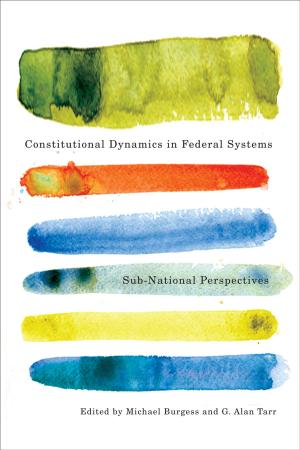Resettling the Borderlands
State Relocations and Ethnic Conflict in the South Caucasus
Nonfiction, History, Asian, Russia| Author: | Farid Shafiyev | ISBN: | 9780773553736 |
| Publisher: | MQUP | Publication: | March 21, 2018 |
| Imprint: | MQUP | Language: | English |
| Author: | Farid Shafiyev |
| ISBN: | 9780773553736 |
| Publisher: | MQUP |
| Publication: | March 21, 2018 |
| Imprint: | MQUP |
| Language: | English |
Until the arrival of the Russian Empire in the early nineteenth century, the South Caucasus was traditionally contested by two Muslim empires, the Ottomans and the Persians. Over the following two centuries, Orthodox Christian Russia – and later the officially atheist Soviet Union – expanded into the densely populated Muslim towns and villages and began a long process of resettlement, deportation, and interventionist population management in an attempt to incorporate the region into its own lands and culture. Exploring the policies and implementations of the Russian Empire and the Soviet Union, Resettling the Borderlands investigates the nexus between imperial practices, foreign policy, religion, and ethnic conflicts. Taking a comparative approach, Farid Shafiyev looks at the most active phases of resettlement, when the state imported and relocated waves of German, Russian sectarian, and Armenian settlers into the South Caucasus and deported thousands of others. He also offers insights on the complexities of empire-building and managing space and people in the Muslim borderlands to reveal the impact of demographic changes on the Armenian–Azerbaijani conflict. Combining in-depth and original analysis of archival material with a clear and accessible narrative, Resettling the Borderlands provides a new interpretation of the colonial policies, ideologies, and strategic visions in the Russian Empire and the Soviet Union.
Until the arrival of the Russian Empire in the early nineteenth century, the South Caucasus was traditionally contested by two Muslim empires, the Ottomans and the Persians. Over the following two centuries, Orthodox Christian Russia – and later the officially atheist Soviet Union – expanded into the densely populated Muslim towns and villages and began a long process of resettlement, deportation, and interventionist population management in an attempt to incorporate the region into its own lands and culture. Exploring the policies and implementations of the Russian Empire and the Soviet Union, Resettling the Borderlands investigates the nexus between imperial practices, foreign policy, religion, and ethnic conflicts. Taking a comparative approach, Farid Shafiyev looks at the most active phases of resettlement, when the state imported and relocated waves of German, Russian sectarian, and Armenian settlers into the South Caucasus and deported thousands of others. He also offers insights on the complexities of empire-building and managing space and people in the Muslim borderlands to reveal the impact of demographic changes on the Armenian–Azerbaijani conflict. Combining in-depth and original analysis of archival material with a clear and accessible narrative, Resettling the Borderlands provides a new interpretation of the colonial policies, ideologies, and strategic visions in the Russian Empire and the Soviet Union.















